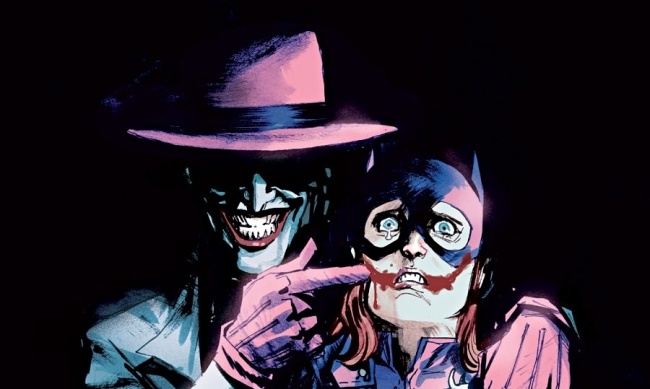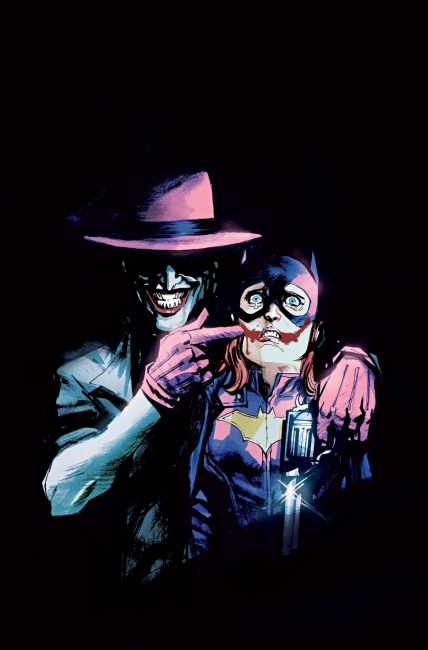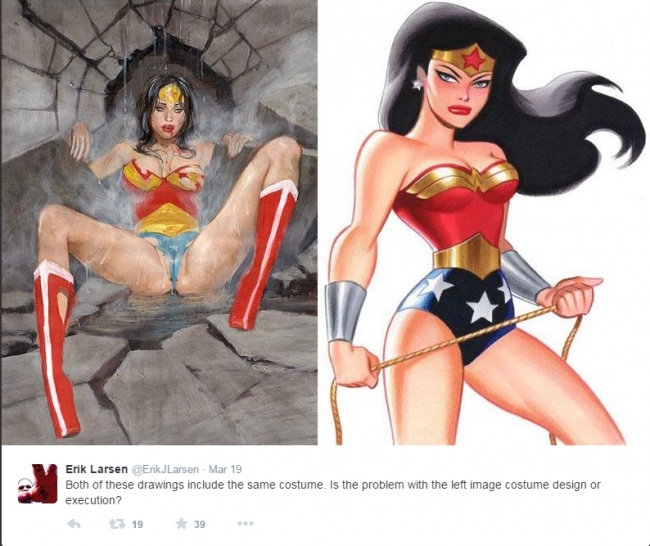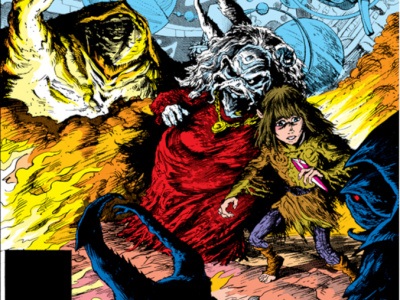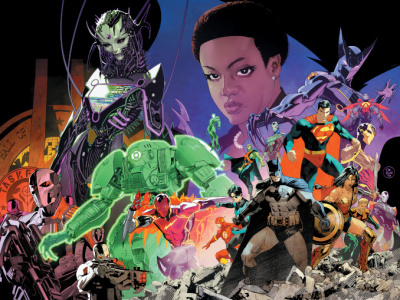Last week was a big week for controversy in the comics business, with continuing discussion of DC’s decision to pull a variant Batgirl cover, Image co-founder Erik Larsen’s characterization of the evolution of women’s superhero costumes as due to a “vocal minority,” a blow-up over a six-year-old cyber-bullying incident, and a discussion of racism and sexism in comics on Larry Elmore’s The Nightly Show.
One of the four controversies had an immediate impact on the business, as DC made the decision to pull the Rafael Albuquerque variant cover to Batgirl #41 off the June schedule, at the request of Albuquerque and the book’s creative team. The cover, which evoked the Killing Joke victimization of Batgirl by the Joker, was seen as an inappropriate portrayal of the character as it exists now. This summary by Polygon lays out the sequence of events and some of the comments.A second controversy was triggered by the signing of blogger Chris Sims to write Marvel’s X-Men ’92, a digital-first Secret Wars title. Writer Valerie D’Orazio went off on Sims on Twitter and on her blog for cyberbullying her on his blog for Comics Alliance in the 2007-2010 era. Sims acknowledged his wrongdoing and apologized, but plenty of criticism continued. Heidi MacDonald’s 4000+-word summary on ComicsBeat has much more on this controversy.
Image co-founder Erik Larsen unleashed a third controversy with his comments on Twitter about costumes for female superheroes, in which he said in part, “I’m tired of the big two placating a vocal minority at the expense of the rest of the paying audience by making more practical women outfits.” Twitter and the blogging universe blew up, with these critical Tweets by Gail Simone among them. “I recall being called variations of ‘vocal minority,’ sometimes nicely, more often not, many times when I started in comics,” she wrote. “It’s horse****. There are still a sizable number of people in the industry who see women as intruders. I don’t think Erik is one of them. But they exist. I can never understand why it’s so difficult just to say, “this isn’t to my taste, but I am glad others like it. Hey all you women who are now reading comics, quit being a vocal minority while dad is trying to sleep!”
Larsen defended and elaborated on his comments with a lengthier post (as an image, to get by the 140-character limit), and in an interview on Reaxxion, in which he argued that “the slippery slope is a return to the Comics Code.” He also posted two images of Wonder Woman in the same costume, by Mark Beachum and Bruce Timm, pointing out that it wasn’t the costume so much as the artists’ styles that contrasted Wonder Woman as “vulnerable and slutty as all hell” with Wonder Woman as “proud, confident and powerful.”The fourth wasn’t so much a controversy as the discussion of controversy in a high-profile venue, on Larry Wilmore’s The Nightly Show on Thursday night, in an episode titled “Race, Gender, and Superheroes.” His panel included Marvel Director, Content & Character Development Sana Amanat, artist Phil Jiminez, hip hop artist (and comics fan) Jean Grae, and comedian Mike Lawrence. The episode was funny, as usual, but hit on some very hot topics in the geek universe.
Comics Controversy Week has been a long-time coming, with its themes covering well-travelled ground. But last week saw an extreme confluence of events that together tell the story of a changing medium where fans, talent, and the commentariat are all social media-empowered and not afraid to express their opinions. Decision-makers are often playing catch-up, as they attempt to adapt to the new comics environment in which the match between their content and the rapidly changing audience is evolving, not always smoothly.
This won’t be the last week when such controversies boil over, or occur in bunches. The good news is that people are talking about comics, and that reflects the increasing cultural importance of the medium, and its rapid evolution.



